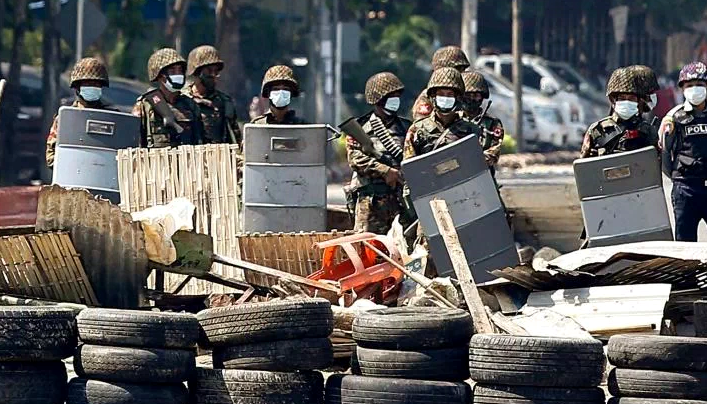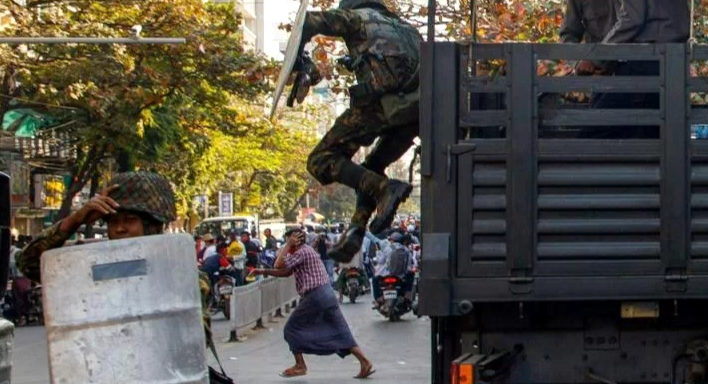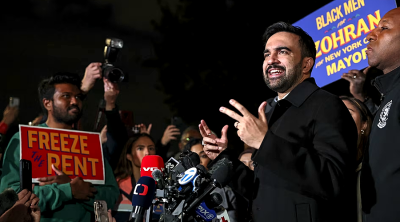By Lisa MARTIN
BANGKOK, Apr 1 (AFP) — As Myanmar descends into chaos, smartphone warriors in the anti-coup movement are seeking revenge online against the junta, hounding people with family ties to the military as a form of "social punishment".
The country has been in turmoil since the military ousted civilian leader Aung San Suu Kyi in February and the death toll from the violence has risen past 500 as the junta struggles to quash dissent.
Anger and grief over the crackdown are being channelled into an online campaign, with close to 170 people with relatives in the junta listed on a website as "traitors".
The site and a corresponding Facebook page — which had 67,000 followers before it was shut down — detail the personal information of these people, such as workplaces, universities and links to their social media accounts — a practice known as doxxing.
"We are here to punish families of the military or the people who are supporting the military. Never forgive, never forget!" the Facebook page said.
Facebook closed down the page for violating community standards, but other pages with smaller numbers of followers still exist.
"We will continue to closely monitor the situation on the ground in Myanmar," a Facebook spokeswoman said.
The consequences of social punishment have resulted in some victims being forced to shut down their online businesses and a Myanmar university student in Japan quitting her studies, according to local media reports.
The campaign is broader in scope than those with family ties to the military — people not participating in the civil disobedience strike action are also being targeted and threats have been made to journalists who cover the junta's press conferences.

'Corrupted system'
For Burmese living abroad, doling out "social punishment" to those with junta connections helps ease their sense of powerlessness as they watch from afar, said Yangon-born Cho Yee Latt, who now lives in Singapore.
"(Myanmar) people in Singapore can't do anything, so they feel very stressed out… they are really angry," she told AFP.
Cho Yee Latt says she contacted the Singapore employer of a Myanmar woman who has a soldier boyfriend and was posting pro-coup messages online.
"We must destroy this corrupted system," she said.
"I only worry about Myanmar's poor who are being killed and arrested. The military families are living in foreign countries overseas, they are living high-class lifestyles, they won't be stressed at all."
Among those targeted is the doctor son of a senior minister, who later went on television to renounce his father.
Bryan Paing Myo Oo, based in Brisbane, Australia, suffered blowback on social media over his father Pwint San's role as commerce minister.
"People who deploy social punishment on me think they are doing the right thing. I want to add that I am participating in social punishment against my father," he told the BBC's Burmese-language programme.
"I texted him: 'Dad, you should quit right now. If not, you will lose me forever as your son.'"
Despite being targeted himself, he sympathises with the aims of social punishment as a way to further pressure the regime.
"I don't blame people for resorting to social punishment because people are being brutally gunned down in the streets, and this is the only weapon civilians have," he said.
The attacks on people with junta links are also being spread on Twitter.
"We will do social punishment to the whole family. We will punish them to the point that they want to kill themselves," one Twitter user wrote, posting pictures of a lieutenant general and his daughter.
Twitter said it was acting on abusive tweets, but experts say social media companies do not have enough Burmese-language moderators to keep up with the challenge.

'With us or against us'
The "with us or against us" mentality is also being pushed by a group of ousted MPs from Suu Kyi's National League for Democracy (NLD), who have been working underground against the junta.
The Committee for Representing Pyidaungsu Hluttaw has warned in a statement that "serious action" would be taken against those who are not part of the protest movement.
The tactic is not unique to Myanmar — during the Hong Kong political protests in 2019 doxxing was commonly used by both sides.
Police became a key target for protesters as clashes raged — especially after officers stopped wearing identification badges — while government loyalists outed Beijing's critics.
Cyber-hate expert Ginger Gorman, who penned a book called "Troll Hunting", says so-called "digilantism" where people seek to get back at others online can have serious real-world consequences.
"This kind of online hunting and extreme cyber-hate perpetrated against an individual is linked to huge harms including… incitement to suicide, murder and real-life stalking and assault," she told AFP.
here have been isolated reports of the social punishment campaign spilling over into the physical world, with some people in Myanmar having their eyebrows and hair shaved off by anti-coup protesters, according to multiple social media posts.
ADVERTISEMENT
ADVERTISEMENT


































